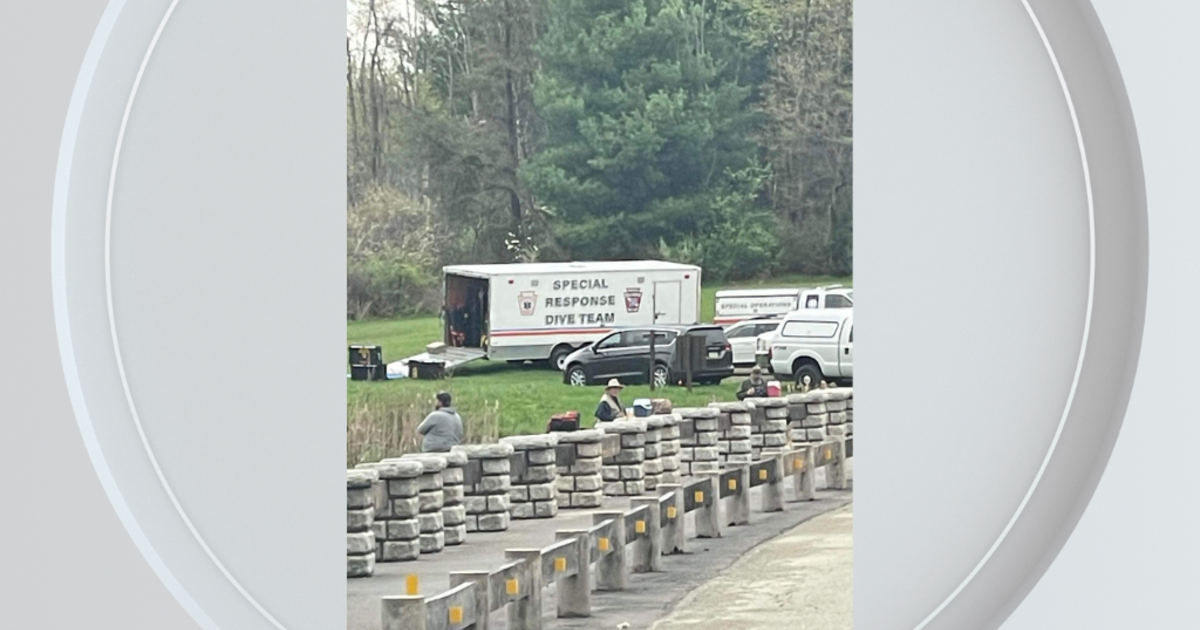Ohio Voters Reject Proposal To Legalize Pot For Medical, Recreational Use
COLUMBUS, Ohio (KDKA/AP) - Ohio voters rejected a ballot proposal Tuesday that would have legalized both recreational and medical marijuana in a single vote - a vote-getting strategy that was being watched as a test case for the nation.
Failure of the proposed state constitutional amendment followed an expensive campaign, a legal fight over its ballot wording, an investigation into petition signatures - and, predominantly, a counter campaign fueled by Ohio lawmakers. It was the only marijuana legalization question on the 2015 statewide ballots.
With three-quarters of the votes counted, the issue was losing 65 percent to 35 percent.
Issue 3 would have allowed adults 21 and older to use, purchase or grow certain amounts of marijuana. It also outlined a proposed regulatory and taxation scheme for cannabis and created a network of 10 growing facilities.
That feature was the target of opponents and a separate ballot question to prevent monopolies from being inserted into Ohio's constitution for the economic benefits of a few.
Campaign director Ian James assured supporters at a downtown Columbus gathering that the fight was not over, calling Tuesday's defeat "a bump in the road."
"We need to not only address compassionate care for the chronically ill, we need to also remain vigilant in protecting direct democracy," he said. "Because when the Statehouse refuses to deal with the voters, the voters have to make them deal to make sure that their voices are heard."
After his remarks, the anti-monopoly measure passed.
Two older voters in downtown Cincinnati who said they support legalization of marijuana both said they voted against Issue 3 because they didn't like the "monopoly" element creating exclusive growing sites.
"I can't believe I voted 'no' when it was finally on the ballot," said Marty Dvorchak, 62, of the northern Cincinnati suburb of Fairfield. "I think it's ridiculous that marijuana is illegal. The war on drugs has been a failure. But I don't think 10 people (growers) should have a monopoly."
At an elementary school in the northern Cincinnati suburb of West Chester, Beth Zielenski, said she voted no on the marijuana question. The mother of one from West Chester cited concerns about how marijuana and edible pot products would be regulated.
At Steubenville voting Precinct 5 at Holy Family Church, few voters were non-committal.
"I'm against it," said Rose Gogul. "For medical reasons, I think it's fine. Other than that, I am against it."
Bridgett Barnett disagreed.
"I'm pretty sure it's going to raise quite a bit of money," she said. "I don't see really what the issue is with marijuana to be honest. I just don't."
KDKA's Harold Hayes: "Cause it's out here anyway?"
Barnett: "Yeah. There's a lot more harsh drugs out here. I'd rather have people do that than do those others."
This proposal is unusual because it would legalize both medical and recreational use. Previous legalizations were phased in after medical use was approved.
William Sleever has mixed emotions.
"If they were going to deal with medical issues that's one thing, but recreational, people can get a little bit more stoned, much more than if you're smoking tobacco cigarettes, so I would think that needs to be scrapped and rewritten before you even try to legalize it," he said.
The proposal also restricts marijuana growth to specific farms and exclusive investors. A separate ballot amendment hopes to dismantle those kinds of deals.
"I'm absolutely ok with it," said LaTonya Harper.
Hayes: "What about for recreation?"
Harper: "As long as they don't abuse it, you know. To each their own."
Kathy Donahue worries about the proximity of potential users from nearby Pennsylvania and West Virginia.
"I've read up on what Colorado went through and I just think it's a very, very bad idea and since Steubenville's the first town off the bridge," she said. "I'm really against it."
Colorado, Washington, Oregon and Alaska, along with the District of Columbia, have legalized recreational marijuana. Medical marijuana is now legal in about half of states.
Gov. John Kasich, a Republican presidential candidate, praised the state's decision.
"At a time when too many families are being torn apart by drug abuse, Ohioans said no to easy access to drugs and instead chose a path that helps strengthen our families and communities," he said in a statement.
The pro-legalization ResponsibleOhio campaign included several famous faces, including boy band star Nick Lachey and basketball great Oscar Robertson. The campaign had spent $12 million as of its most recent campaign filing and reported raising about the same amount.
"Issue 3 was nothing more and nothing less than a business plan to seize control of the recreational marijuana market in Ohio," Curt Steiner, director of Ohioans Against Marijuana Monopolies, said in election night remarks. "Issue 3 was designed and built primarily to garner massive and exclusive profits for a small group of self-selected wealthy investors."
Join The Conversation On The KDKA Facebook Page
Stay Up To Date, Follow KDKA On Twitter
(TM and © Copyright 2015 CBS Radio Inc. and its relevant subsidiaries. CBS RADIO and EYE Logo TM and Copyright 2015 CBS Broadcasting Inc. Used under license. All Rights Reserved. This material may not be published, broadcast, rewritten, or redistributed. The Associated Press contributed to this report.)



